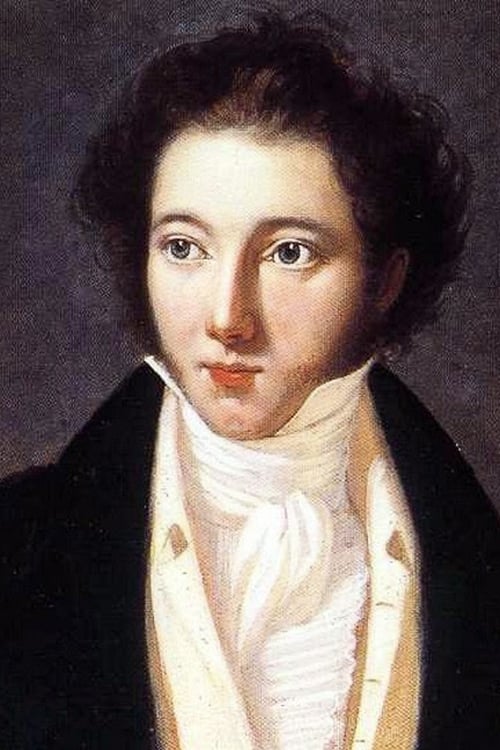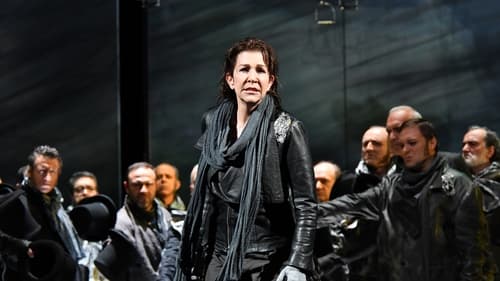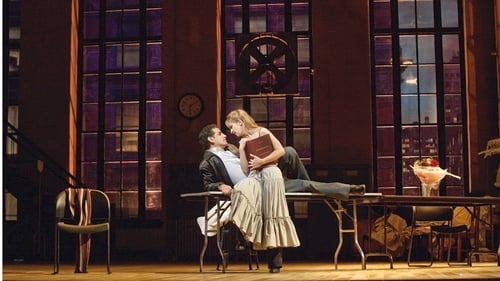
Vincenzo Bellini
出生 : 1801-11-03, Catania, Sicily, Italy
死亡 : 1835-09-23
略歴
Vincenzo Salvatore Bellini was born on November 2, 1801 in Catania, Sicily, Italy. He was the first of seven children in a musical family. His grandfather gave him first piano lessons at the age of 3, and at the age of 5 young Bellini could play good piano to an audience. His first composition dates from around that age. He was granted a scholarship from the municipal government of Catania to study music at the Conservatory of Naples.
Bellini studied under composer Niccolo Zingarelli and a vocal teacher Girolamo Crescenti. His fellow student soprano Isabella Colbrani eventually became his wife. Bellini's graduation opera "Adelson e Salvini" generated a commission from the Royal court. Impresario Domenico Barbaja secured a commission for Bellini's opera for La Scala in Milan. "Il Pirata" started Bellini's fruitful partnership with the librettist Felice Romani, who complemented Bellini's flowing serpentine vocal lines with meticulously chosen words. Their tandem created 7 Bel canto operas in about six years.
In Paris Bellini received a commission from the Theatre Italien for "Il Puritani", which he composed on the libretto by Count Carlo Pepoli. It became a triumph over his competitor Gaetano Donizetti. Bellini was recognized by the leading cultural figures of his time; Franz Liszt, Mikhail Glinka, Frédéric Chopin, George Sand, Alfred de Musset, Victor Hugo and Alexandre Dumas père, among others. Heinrich Heine was fond of Bellini's works; But he predicted that Bellini will die, like Wolfgang Amadeus Mozart and Raphael, at the hight of his genius. Bellini died of peritonitis on September 23, 1835, in Paris, France, and was laid to rest in the cemetery of Pere Lachaise in Paris. In 1876 his remains were moved to the cathedral of his native town of Catania, Italy.
Bellini's opera "Norma" became a hallmark of the Bel canto style. It was premiered on December 26, 1831 at the La Scala, Milan, and initially had a cool reception on its first night. The title role is still considered the most difficult role in all of the soprano repertoire. Its performances by Maria Callas are among the finest. The extremely popular cavatina "Casta diva" was used in soundtracks for many films, such as A Midsummer Night's Dream (1999), The Game of their Lives, The Bridges of Madison County (1995), Atlantic City (1980), and Lorenzo's Oil (1992) among other films.
- IMDb Mini Biography By: Steve Shelokhonov

Original Music Composer
Gualtiero is an exiled count, forced to become a pirate. His enemy Ernesto blackmails Imogene into marrying him, even though he knows she loves Gualtiero. In the searing final scene Imogene goes insane when Gualtiero is condemned to death. This is riveting bel canto drama as you have seldom hear it.

Music
In this documentary, award-winning filmmaker Susan Froemke explores the creation of the Metropolitan Opera’s storied home of the last five decades. Drawing on rarely seen archival footage, stills, and recent interviews, The Opera House looks at an important period of the Met’s history and delves into some of the untold stories of the artists, architects, and politicians who shaped the cultural life of New York City in the ’50s and ’60s. Among the notable figures in the film are famed soprano Leontyne Price, who opened the new Met in 1966 in Samuel Barber’s Antony and Cleopatra; Rudolf Bing, the Met’s imperious General Manager who engineered the move from the old house to the new one; Robert Moses, the unstoppable city planner who bulldozed an entire neighborhood to make room for Lincoln Center; and Wallace Harrison, whose quest for architectural glory was never fully realized.

Music
The priestess Norma loves Pollione, leader of the occupying force suppressing her people, and has borne two children by him. But Pollione’s love has withered, and he now loves Norma’s fellow priestess Adalgisa. Meanwhile, the people urgently look to Norma to lead their rebellion. Norma discovers the love between Pollione and Adalgisa. Furiously she gives the signal for war. Pollione is captured, attempting to steal away with Adalgisa. Norma, called upon to announce a sacrificial victim to consecrate the uprising, declares it shall be a guilty priestess: herself.

Original Music Composer
The priestess Norma loves Pollione, leader of the occupying force suppressing her people, and has borne two children by him. But Pollione’s love has withered, and he now loves Norma’s fellow priestess Adalgisa. Meanwhile, the people urgently look to Norma to lead their rebellion.

Music
Bellini - i Capuleti e i Montecchi at the Gran Teatre del Liceu, Barcelona

Original Music Composer
"This is Vienna State Opera live at home". March 2015

Original Music Composer
Bellini's radiant retelling of Shakespeare's Romeo and Juliet is a beacon in the bel canto tradition. San Francisco Opera's co-production features two of the greatest voices in bel canto together for the first time: mezzo Joyce DiDonato and soprano Nicole Cabell. Their compelling duet is one of the finest marriages between two voices in many, many years. The production, directed by Vincent Broussard and featuring costumes by Christian Lecroix, is captured in brilliant HD.

Compositors
The context is England's Civil War between the Roundheads (the Parliamentarians, or Puritans of the title) and the Cavaliers (Royalists). A love triangle between Arturo (a Puritan), Riccardo (a Royalist) and the beautiful Elvira results in a drama of escapes, disguises and captures, during which Elvira loses her reason, before a final pardon restores her senses and unites her with her beloved Arturo. The lead tenor role is notoriously difficult and Juan Diego Flórez shows no strain or difficulty throughout the role. Opera fans will undoubtedly be impressed with the overall production and the tenor's performance in particular.

Music
Just as a young woman is about to marry her sweetheart, she is discovered—by the entire village, to say nothing of her fiancé—asleep in the bedroom of a stranger. It takes the young man two acts to figure out that sleepwalking is to blame, and everything ends happily. Natalie Dessay as Amina and Juan Diego Flórez as Elvino deliver bel canto magic and vocal fireworks in Mary Zimmerman’s 2009 production. The Tony award-winning director transfers Bellini’s bucolic tale to a rehearsal room in contemporary New York, where an opera company rehearses La Sonnambula—and where the singers are truly in love with each other.

Compositors
It's hard to imagine a video opera collection without this superbly sung MET production of Bellini's I Puritani. Not that it's perfect by any means, but its excellences--most especially Anna Netrebko's electrifying singing and acting of Elvira--banish carping about other aspects of this memorable night at the opera. Netrebko is fragile from the start, her facial expressions and hand movements immediately conveying the girl's vulnerability. She has a mad scene in each act; the first when she realizes her fiancé has disappeared with another woman, the third, in the final act, a brief relapse when her returned fiancé is taken by the army to be executed. But it's in the second act that the real fireworks occur, with a Mad Scene that rivals Donizetti's Lucia for bel canto primacy. Here, Elvira is first heard off-stage, after the chorus has informed us that she's deranged. She enters wearing her wedding gown and begins Qui la voce in a voice as frail as her psyche.

Original Music Composer
This new production of Bellinis Norma by Jürgen Rose (sets, costumes, stage direction, and lighting) to honor Edita Gruberovas first staged assumption of the title role was taped in January and February of 2006 in Munich. It does neither the opera nor the soprano any favors. In most ways, its a pretty gloomy affair.

Original Music Composer
In Guy Joosten's ingenious production of Bellini's masterpiece, Norma is about more than just beautiful singing. It becomes a layered, timeless drama in which Norma is the archetypal successful woman struggling to retain her dominant but vulnerable position. Hasmik Papian's lyrical and intense interpretation of the title role accentuates the striking similarity between a Druid high priestess and a modern opera diva. Conductor Julian Reynolds guides the brilliant cast, choir and Netherlands Chamber Orchestra to great heights, providing a refreshing new take on the chef d’oeuvre of bel canto.

Original Music Composer
Live performance from the Zurich Opera House, January 2002.

Original Music Composer
Gaul has been conquered by the Romans. Oroveso, the Arch-Druid longs to lead a Gallic rebellion against the colonial forces. He and all the others wait for the signal to be given by his daughter, the Druid High Priestess Norma. But Norma has fallen in love with the Roman Proconsul, Pollione, and given birth to two children. They have been brought up in secrecy by her confidante Clotilde. Norma still loves Pollione but he has fallen in love with a novice priestess, Adalgisa.

Original Music Composer
In Concert at the Met (DVD) - Highlights Five of the Met's greatest stars - Price, Horne, Troyanos, Domingo, and Milnes - joined James Levine for a series of irresistible concert programs, originally telecast in the 1980s. Featuring works by composers ranging from Handel to Meyerbeer to Puccini and Verdi, these performances include some of opera's favorite moments, delivered by a stunning group of legendary artists. Plàcido Domingo, Tatiana Troyanos (February 28, 1982) Leontyne Price, Marilyn Horne (March 28, 1982) Plàcido Domingo, Sherrill Milnes (January 30, 1983)

Writer
Oroveso, a Druid High Priest, gathers his people in a sacred forest and prays to their gods for help in vanquishing the Romans who have taken over Gaul. Unbeknownst to Oroveso, his daughter, Norma, a High Priestess, has for some time been the lover of Pollione, the leader of the Romans; she has, in fact, not only broken her sacred vow of chastity but has borne two children to the warrior. Norma uses her position to dissuade the Gauls from attacking the Romans, claiming that the gods have told her that the time is not favourable. Recorded at Théâtre Antique d'Orange, 1974

Music
Italian TV production of the Bellini opera

Opera







